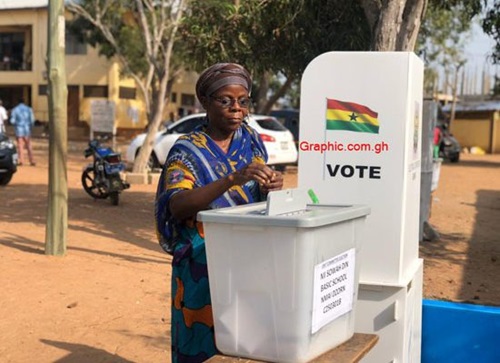
Keeping to election year vow
Election years are quite tricky for governments because they must try to maintain a fine balance between resisting the temptation of spending excessively to finance their electoral promises and holding the purse tightly to prevent budget overruns.
Advertisement
Typically, many governments fall for this temptation, leading them into huge deficits with painful consequences of ballooning the public debt, and Ghana has been no exception.
Ghana has had its fingers burnt in most election years after dropping its guard and piling up debts by spending money it didn’t have just to make the electorate happy.
This time around in the 2024 general election, the government has resolved to spend within its means to maintain the momentum in economic recovery.
The Minister of Information, Kojo Oppong Nkrumah, gave this assurance last week after a Cabinet retreat.
(See our October 23, 2024 edition of the paper.)
“We are going to be tightly spending within the revenue limits of the country.
If we do not have revenue for a project, we will not necessarily borrow to meet it.
Cabinet is resolved that despite the fact that 2024 is an election year, focus should be on ensuring that we are able to consolidate the stability, bring inflation down and ensure that depreciation of the currency is held in abeyance,” he said.
There is a story behind this strong commitment on the part of the government.
To contextualise that story, the economy has been battling with severe challenges in the last two years, with inflation hitting a 22-year high of 54.1 per cent in December 2022 and an unsustainable public debt above 93 per cent of the country’s productivity, measured by gross domestic product (GDP).
In July 2022, the government formally approached the International Monetary Fund (IMF) for a fund programme to support structural reforms and help the economic recovery of the country.
The key objectives of the extended credit facility programme are to, among others, restore fiscal sustainability and re-anchor inflation expectations by achieving low and stable inflation, strengthen the exchange rate regime, restore investor confidence and regain market access while unlocking other financing sources.
Four months after implementing the programme, it is now bearing fruit as GDP growth has rebounded strongly, averaging 3.2 per cent in the first two quarters of the year.
Inflation has also dropped to 40.1 per cent, while the cedi’s depreciation has slowed from the beginning of the year to date, after depreciating cumulatively by about 23.5 per cent year-to-date compared to a cumulative depreciation of 37.6 per cent over the same period in 2022.
On the fiscal front, the primary balance on commitment basis for the first half of the year was a surplus of about GH¢2 billion compared to a target of a deficit of GH¢4 billion.
Gross International Reserves (GIR), which measures how the country could fund its import bill, also stood at $2.1 billion equivalent to one-month import cover, compared with $1.5 billion (0.6 month of import cover) recorded at the end of December 2022.
The IMF and the Bank of Ghana, among others, have given thumbs up to the country’s recovery, and the verdict unanimously is that growth this year has proved more resilient than initially anticipated.
The ECF programme with the IMF forecasted year end growth of 1.5 per cent of gross domestic product (GDP); however, the economists have now revised the forecast, expecting the economy to grow to about 3.2 per cent.
The Daily Graphic holds the view that although all the challenges would not be solved overnight while there is still a lot of work ahead, what makes us very optimistic is that these actions are already generating positive results.
We find it encouraging that we are experiencing signs of success of the government’s economic recovery programme dubbed the Post-COVID-19 Programme for Economic Growth.
Thankfully, Ghanaians can see a turnaround characterised by declining inflation, relative currency stability, improvement of fiscal space and an improvement in gross international reserves.
It is also important that while keeping a firm hand on expenditure, the Daily Graphic urges the government to continue to keep its eyes on blocking all the wastages and loopholes by enhancing the public financial management system.
We trust the government to maintain the expenditure discipline.




